After a double tragedy, Sarah Wheeler found purpose in grief
Driven by sorrow but also determination, Sarah Wheeler embarked on a charity horseback ride 290 days ago. On Saturday, she returns home.
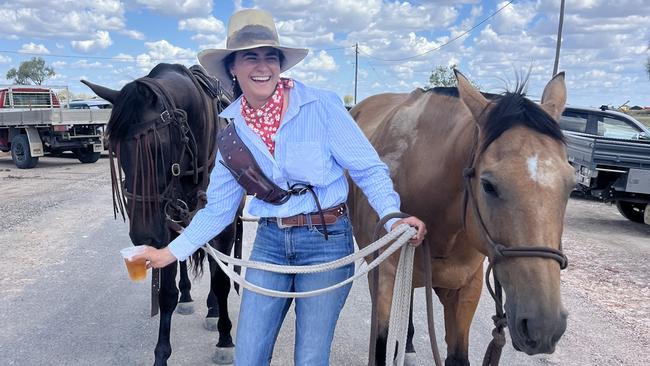
For weeks, Sarah Wheeler had imagined how Saturday 22 February would go, and it did not dissapoint. More than a hundred people lined the main drag of the tiny town of Rowena, in the northern inland of NSW, to cheer her on as she crossed the finish line of an incredible journey.
Flanked by her trusty horses, Shifty and Sally, a huge grin washed over Wheeler’s face. The finish line just so happened to line up with the town’s local watering hole which is a place she has also been dreaming about. As she reaches the pub, she is handed a cool beverage and she keeps her address short and sweet, and it is met with even more applauding.
“Thank you everyone,” she says. “Cheers!”
Her day started like many of those before it, in that moment of quiet just before dawn when the sky turns shades of purple, peach, and yellow. But this was the final 29 kilometres of their 290-day ride across Queensland and NSW together.
They spent Friday night at Wheeler family farm, on the outskirts of Rowena. Befpre setting off, she joked that her horses may need convincing to leave the property once more. “I could be walking them for the first five to 10km,” Wheeler had joked. “I don’t know how they’re going to take it when I get them to try and leave again after arriving home. Maybe I’ll just whisper in their ears ‘just give me one more day’.”
Dubbed The Outback Long Ride, Wheeler set off in May 2024 to raise money and awareness of her own charity, A Daughter’s Way, which supports families experiencing grief in rural Australia, and for the Pancare Foundation, a charity supporting families and research into upper gastrointestinal cancers.
Upper GI cancer refers to a group of cancers that affect the upper digestive system. They include pancreatic, liver, stomach, esophageal and biliary cancers; all of which have low survival rates and, according to Pancare, result in about 17 per cent of all cancer deaths.
The National Rural Health Alliance says people living in rural, regional, or remote parts of Australia have an even poorer chance of cancer survival than their city counterparts. There are a number of barriers that lead to poorer health outcomes for people living in regional areas, including less access to a GP, specialist, or regular cancer screenings. Treatment services are also more limited, meaning patients may need to travel large distances or be away from home and work for long periods, setting both logistical and financial challenges.
“Rural Australians are 1.3 times more likely to die of cancer than those in suburbia,” Wheeler says. “The lack of treatment out here, and it’s also really hard for farming families to go and get treatment and have to leave their gardens, their jobs, their animals. We have a lot of responsibilities out on the farm, and it’s not just a quick trip to town.
“What I think would be really beneficial is having treatment options for rural people, or just the assistance to help them out on their farms or caretaking or something like that.”
Upper GI cancers and grief are issues close to Wheeler’s heart. Her father died suddenly from a heart condition when she was 12 years old. After his death, Wheeler, her three sisters and their mum, Terri, continued running the family’s 4400ha cropping property. Then, 14 years later in 2022, Terri was diagnosed with stage 4 bile duct cancer, a rare upper GI disease. She died five months later.
Struck by grief, Wheeler and her sisters decided to lease out their family farm so they could concentrate on healing. Then, not long after their mother’s death, the sisters went on a trip together to ensure they marked their youngest sister’s birthday properly.
“We had the best time,” she says. “We laughed and we cried, you wouldn’t think that we’d even be able to laugh a month after our mum passed away. But we all got to learn a new skill together and we just laughed at one another and we talked about the memories that we have of mum and dad, and it was just the best way to start our healing journeys as a family.”
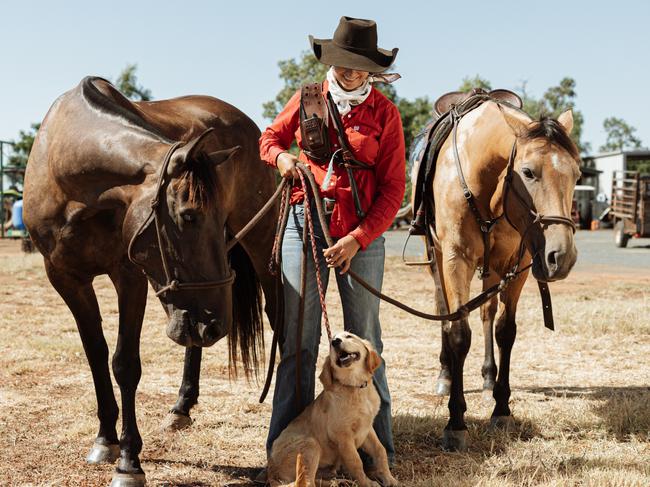
“Sally has a ‘resting bitch-face’ and sort of always has her ears back, but she’s such a sweetie. People are usually scared of her at first, because she looks like she could just lash out.
“She’s 15 years old, so she’s got a bit of age in her and people were worried that she wouldn’t be able to make it. But she is as tough as they come. I could not have done this trip without her.”
Then there is Shifty, who she describes as being tall and goofy and somewhat akin to a big puppy dog who just has something “special” about him. She bought him at an auction on the anniversary of her father’s death. She never intended on bidding at the auction – she just wanted to get a feel for what one was like. That was until she saw Shifty.
“I just got this feeling like I needed to go and talk to the owners,” she recalls. “I told them my story, and I told them what I was going to do and they were like they looked at each other, and they said, ‘Do you want to have a ride of him before the sale tomorrow?’ And I said, ‘Absolutely’.
“As soon as I sat in the saddle, I got this full-body goosebump feeling – like this horse was just meant for me. I couldn’t get over the feeling.”
The next day, she made the winning bid for Shifty in what was an emotionally charged auction that left few with a dry eye.
Sally, Shifty, and Wheeler then spent the next year getting to know each other before embarking on their journey together, along with a rotating team of support drivers made up of friends and strangers who had heard about her journey.
In the months of planning for her trip, Wheeler anticipated it would serve as both a fundraiser and something cathartic just for her. What she did not expect was for her trip to resonate so strongly with the communities she visited and the homesteads she passed. Along the way, people opened their homes, hearts, and paddocks to Wheeler and her horses.
One of her most memorable moments was in the outback Queensland town of Tambo. It had been one of those difficult and deflating days where Wheeler’s grief was strong and she was missing her parents dearly. Then, an old family friend offered her a place to stay in exchange for some help with mustering.
That afternoon, a spectacular sunset washed over the sky.
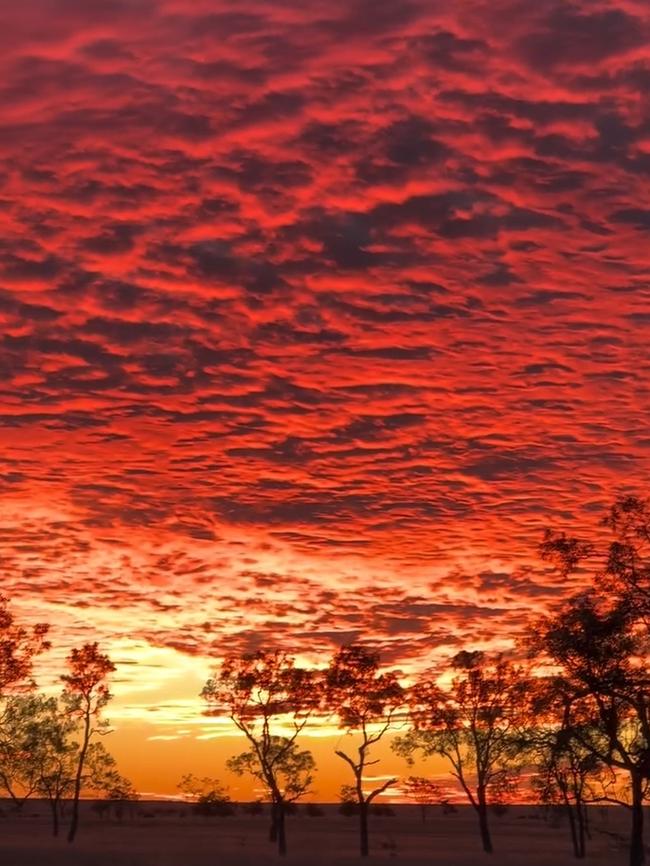
“It was like my parents had painted the sky,” she says. “It was like they were saying ‘You did this. You got here’. The sky was red and orange and pink, and just incredible. It was insane. The best sunset I’ve seen in my life, hands down, and my horses were running around this paddock and jumping and kicking – they felt it too.”
Along the way she was able to take time to appreciate more and more of those little magical moments that she knows her parents would have loved so much.
As the days wore on and seasons changed, Wheeler also had to adapt her riding depending on the elements. In winter, she wouldn’t set off until 7am. But in summer, especially during searing heatwaves in the north, she had to adjust their ride times. At its peak, they would ride from midnight until 8am, guided by moonlight or head torches.
Momentum grew as communities rallied around her. Local pubs would put on fundraiser events to coincide with her arrival, people would offer her and her horses food and water, and each day helped her to heal just a little bit more.
What she did not expect was to become an inspiration to others.
“I recently went to this little country town called Come By Chance and the kids just ran straight up to me, and they just hugged me and started asking questions and were asking how my horses were, and knew their names, and they handed me these little drawings on pieces of paper of myself and my horses.
“They were all saying they want to be like me one day, or they want to do a ride like this one day and help charities. I think that this trip has just become so much more than what I expected. And it’s really nice to know that I’m helping people in these ways.”
This final week on the road has also been emotionally exhausting for the now 27-year-old, with the weight of the past 290 days resting heavily on her shoulders. She says she has cried every day this week, as she steps closer and closer towards her finish line.
She has also grown stronger and accepted that grief is now part of her life and not something to fear.
Wheeler set out with the intention of raising $100,000 to be split between Pancare and A Daughter’s Way. But with regional Australia’s support, that goal has been obliterated and is now sitting closer to $260,000.
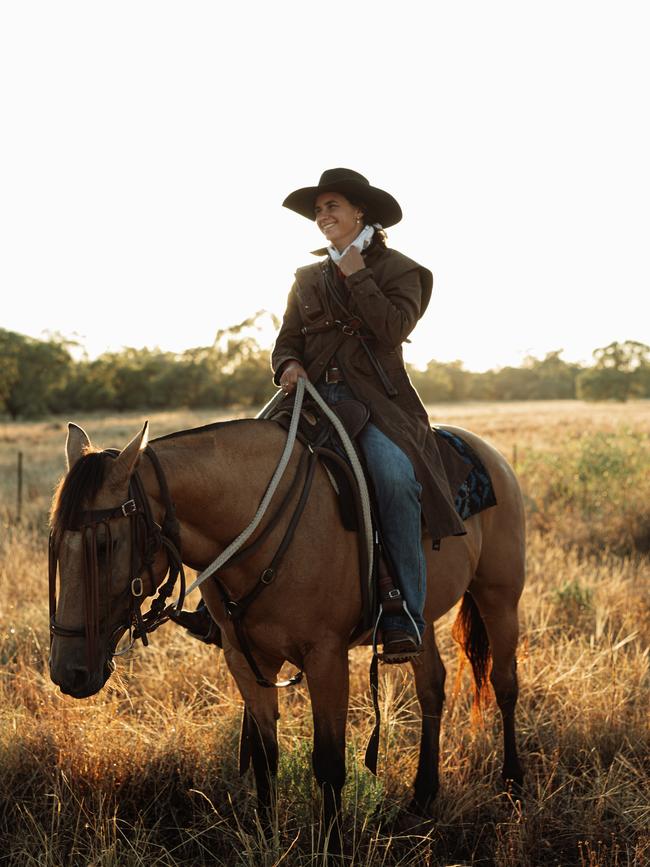
As for the future, Wheeler has plans to write a children’s book about grief, based on her horseback ride. She also has dreams of making a documentary of her journey, using the photos and videos she collected along the way.
But for right now, Wheeler is focused on the present.
“I’m still the same person as when I left,” Wheeler says. “But I’m a lot happier.
“I’ve opened up to people and I think that’s a really important thing – to talk to people when you’re grieving. It keeps the memory alive of the people that you’ve lost and that’s all that they would want.”
For further details visit theoutbacklongride.com.au




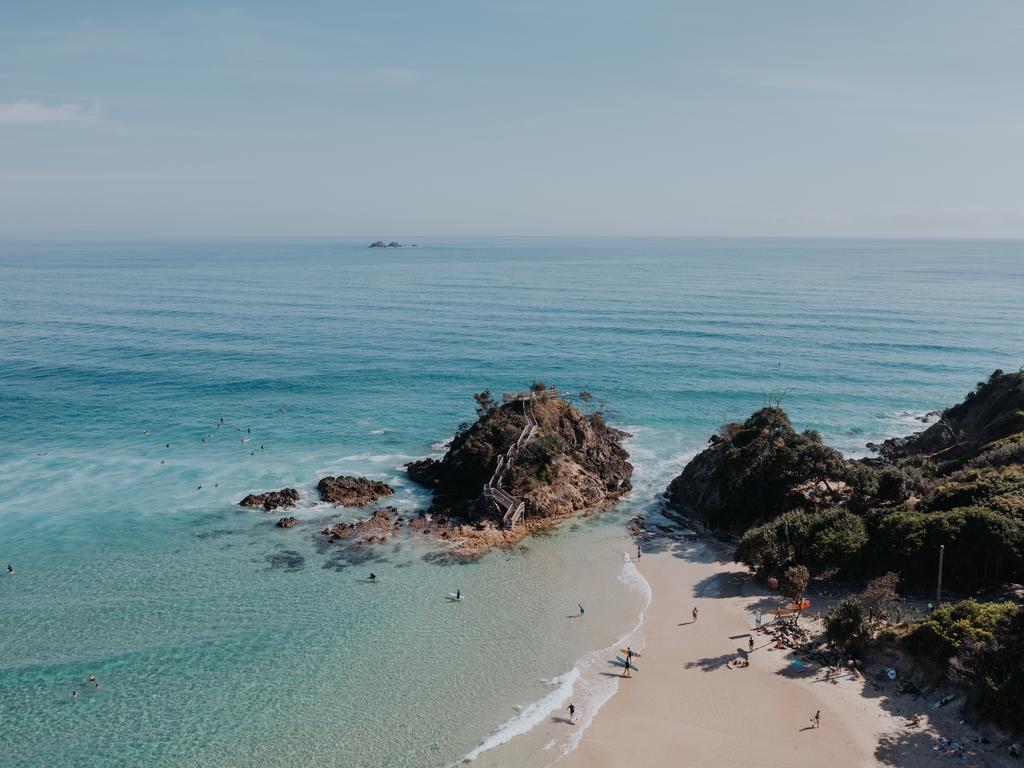
To join the conversation, please log in. Don't have an account? Register
Join the conversation, you are commenting as Logout